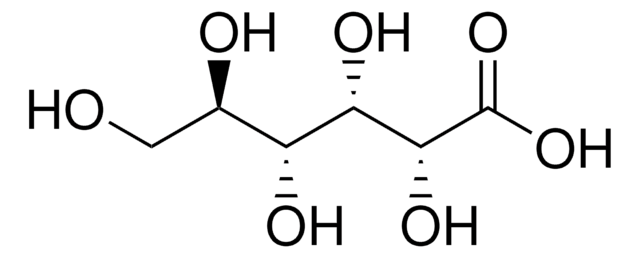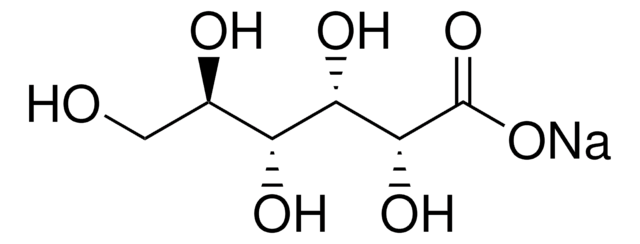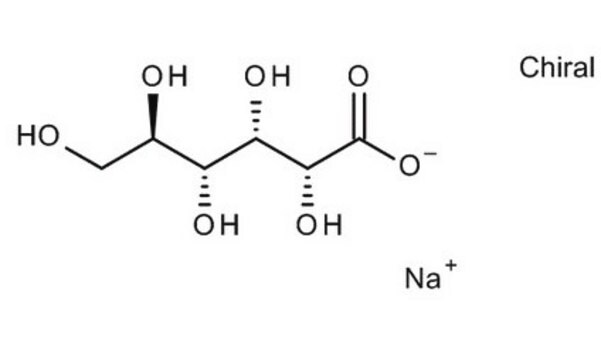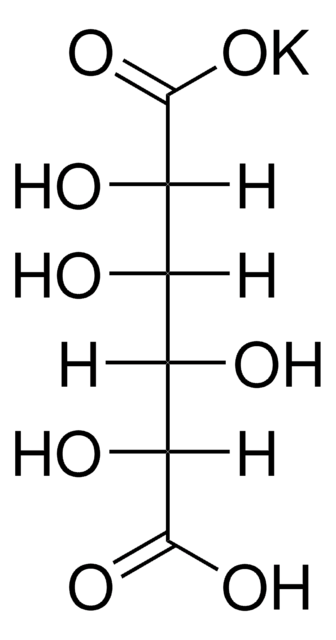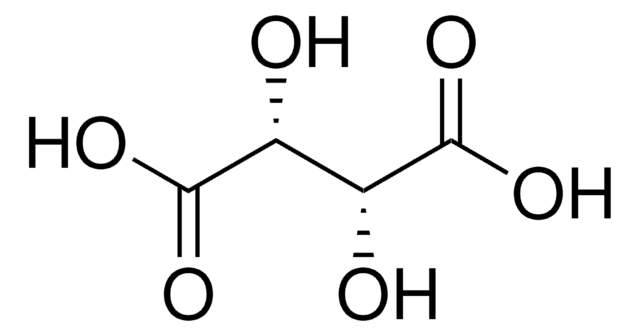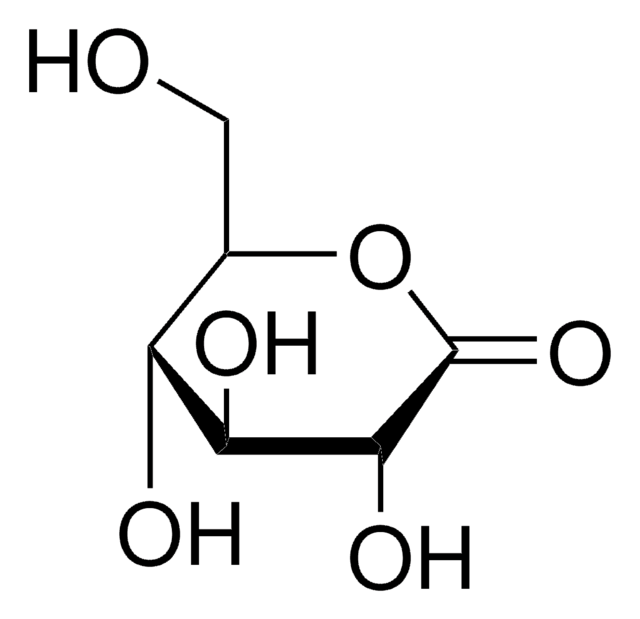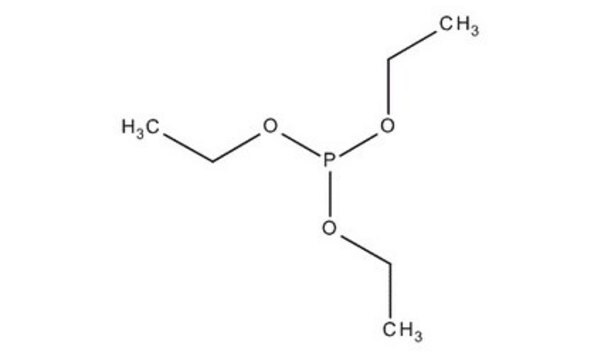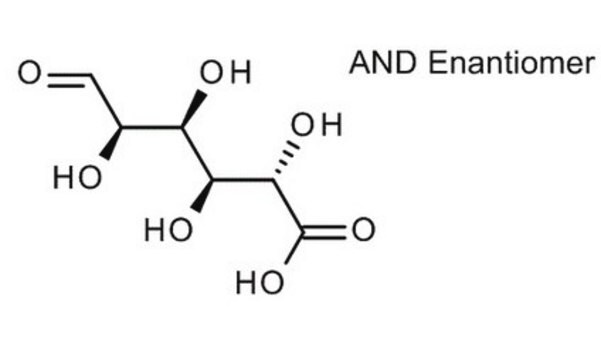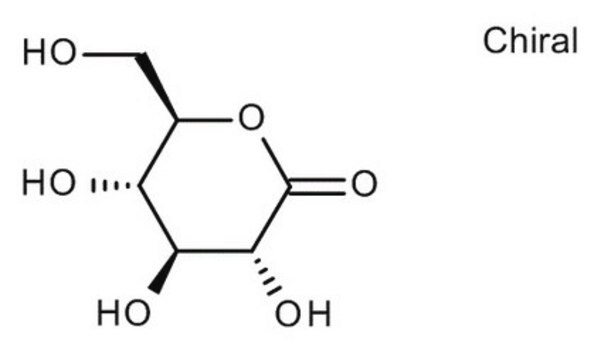8.22057
Gluconic acid
(50% solution in water) for synthesis
Synonym(e):
2,3,4,5,6-Pentahydroxycaproic acid
Anmeldenzur Ansicht organisationsspezifischer und vertraglich vereinbarter Preise
Alle Fotos(1)
About This Item
UNSPSC-Code:
12352106
NACRES:
NA.22
Empfohlene Produkte
Qualitätsniveau
Form
liquid
pH-Wert
2.2 (20 °C, 500 g/L in H2O)
bp
105-106 °C/1013 hPa
Dichte
1.24 g/cm3 at 20 °C
Lagertemp.
2-30°C
Anwendung
- Biodegradable chelating agent for wastewater treatment: Gluconic acid serves as a biodegradable chelating agent that enhances metal ion removal in wastewater treatment processes. This application is valuable for environmental sustainability and industrial wastewater management (Galaz et al., 2024).
- Pharmaceutical production optimization: Gluconic acid is used in pharmaceutical production, where its properties help in the optimization of medication formulations. This application ensures effective drug delivery and stability, crucial for therapeutic efficacy (Xing et al., 2024).
- Food preservation: In the food industry, gluconic acid is applied as a natural preservative, enhancing the shelf life and safety of food products. Its use supports food safety regulations and consumer health (Lu et al., 2024).
- Enhancement of bioenergy production: Gluconic acid contributes to the enhancement of bioenergy production processes, particularly in biofuel production through fermentation optimization techniques. This application is key to advancing renewable energy technologies (Liu et al., 2024).
- Research tool in metabolomics: Utilized as a research tool in metabolomics, gluconic acid aids in the study of metabolic processes in various biological systems, providing insights into cellular functions and disease mechanisms (Patakova et al., 2024).
Hinweis zur Analyse
Gehalt (acidimetrisch): 48.0 - 52.0 %
Dichte (d 20 °C/ 4 °C): 1.230 - 1.245
Dichte (d 20 °C/ 4 °C): 1.230 - 1.245
Lagerklassenschlüssel
10 - Combustible liquids
WGK
WGK 1
Analysenzertifikate (COA)
Suchen Sie nach Analysenzertifikate (COA), indem Sie die Lot-/Chargennummer des Produkts eingeben. Lot- und Chargennummern sind auf dem Produktetikett hinter den Wörtern ‘Lot’ oder ‘Batch’ (Lot oder Charge) zu finden.
Besitzen Sie dieses Produkt bereits?
In der Dokumentenbibliothek finden Sie die Dokumentation zu den Produkten, die Sie kürzlich erworben haben.
Kunden haben sich ebenfalls angesehen
Unser Team von Wissenschaftlern verfügt über Erfahrung in allen Forschungsbereichen einschließlich Life Science, Materialwissenschaften, chemischer Synthese, Chromatographie, Analytik und vielen mehr..
Setzen Sie sich mit dem technischen Dienst in Verbindung.